Expert Interview
Hong Kong’s National Security Law and the Fear of the Unknown
by Rachel Lietzow, Qiao Ye and Sonia Tan, graduate students, UC San Diego School of Global Policy and Strategy
|
|
Background
In response to year-long protests sparked by the 2019 anti-extradition bill in Hong Kong, the Chinese National People’s Congress (NPC) took action in passing the National Security Law for Hong Kong on June 30, 2020. The law has elicited mixed reactions, and scholars have engaged in wide debate over interpretation of the published text. While the law has generated an international outcry about its sweeping nature and the impending end of “One Country, Two Systems,” pro-China media and opinions have insisted on the law’s necessity in maintaining Hong Kong’s long-term stability and prosperity.
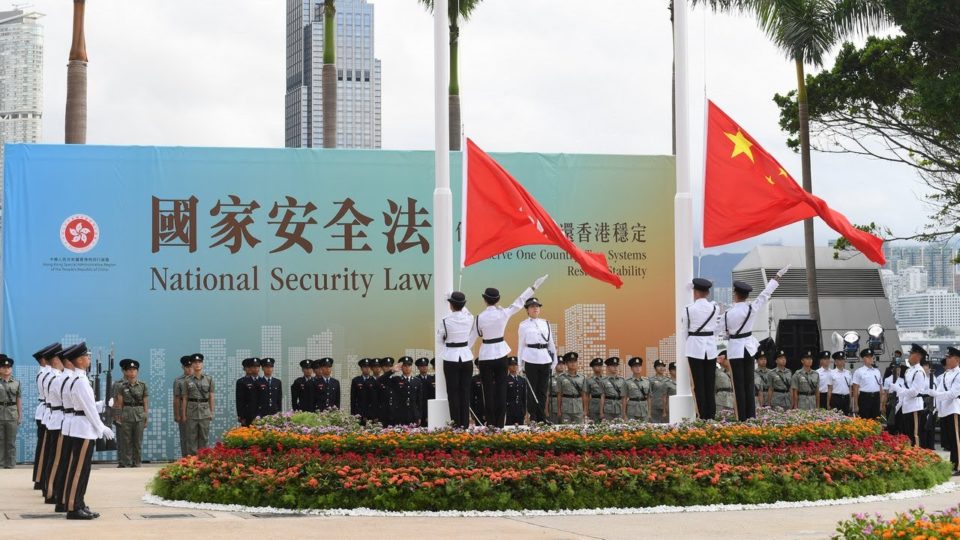
Photo via YouTube/Information Services Department, HKSARG
How did you first react to the news of the National Security Law and its contents?
Shih: To be honest I was very shocked. There was already a warning during an NPC session, mentioning that they will pass something on Hong Kong. The institutional change that I did not expect was the new Bureau for the Upholding of National Security in Hong Kong, which is an organization directly sent from mainland Chinese authorities to Hong Kong and would be staffed by presumably officials from the Ministry of State Security. Of course, the failure of the Hong Kong government up to this point was that they did not have a specialized bureau in charge of what Beijing perceived to be national security matters. What is truly shocking about this law is that whatever [the bureau] does in Hong Kong, no local authorities can intervene. They can do whatever they want…that is the shocking part.
I am also very sad because Hong Kong is a place with vibrant culture, where Western and Eastern cultures really mix together, and different religions live in harmony. One of the things that the Chinese government did [after the revolution] was to eradicate civil society in Shanghai and Guangzhou...and I am afraid this rich civil society which you still see in Hong Kong will be systematically destroyed by the new national security and mainland bureaucracy.
“I am afraid this rich civil society which you still see in Hong Kong will be systematically destroyed by the new national security and mainland bureaucracy.” - Shih
Ng: Most people didn’t see it coming. If someone says that ‘I knew this was going to happen’ before the law was passed, that person would probably be lying. The National Security Law was passed by using Article 18 Annex III [of the Hong Kong Basic Law], which was about anything related to ‘a state of war, or by reason of turmoil within the Hong Kong Special Administrative Region (SAR) which endangers national unity or security or is beyond the control of the government of the region.’ Most people would not imagine that Article 18 could be used as a backdoor to enact a set of national security laws. To many [Hong Kong residents], the understanding of the [One Country, Two Systems] concept does not include passing a piece of law of such broad scope under Article 18.
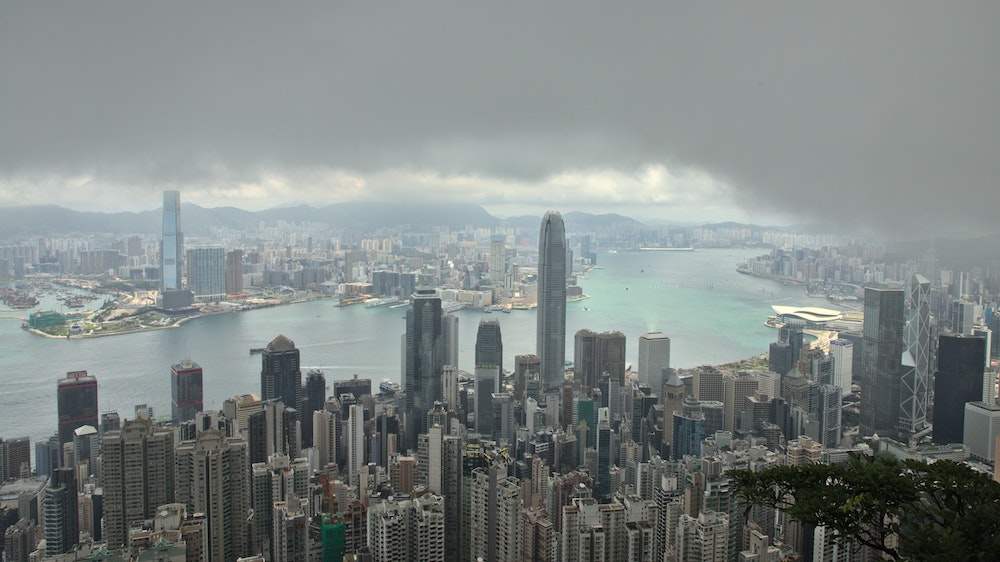 In a spectrum of options, I consider this to be on the far side. That is because if you follow the history of the Hong Kong SAR and the Basic Law, many previous disputes were about Article 23: the making of the law regarding treason, secession, sedition, and subversion against the central government, and also state secrets. The National Security Law overlapped in part with the Article 23 legislation. Article 23 legislation never was passed because of local protests in Hong Kong. The thinking at the time was that the central government had to push back on the timetable to pass the law regarding Article 23...a common perception was that even though [the Chinese leadership] was very unhappy with the status of Article 23, they would wait.
In a spectrum of options, I consider this to be on the far side. That is because if you follow the history of the Hong Kong SAR and the Basic Law, many previous disputes were about Article 23: the making of the law regarding treason, secession, sedition, and subversion against the central government, and also state secrets. The National Security Law overlapped in part with the Article 23 legislation. Article 23 legislation never was passed because of local protests in Hong Kong. The thinking at the time was that the central government had to push back on the timetable to pass the law regarding Article 23...a common perception was that even though [the Chinese leadership] was very unhappy with the status of Article 23, they would wait.
As a scholar who sometimes has to make critical statements about the Chinese leadership and CCP, are you afraid of going back to Hong Kong?
Shih: I’m a little afraid. That’s the objective of the Chinese government: to leave things kind of ambiguous. Meanwhile, people will be scared, and they will self-censor more than they want to because of this ambiguity. Also, the party’s record is generally to go after the weak and relatively unknown first, before they go after the really famous people. However, as academics and intellectuals, we also have our stance: we also have things that we are not going to self-censor to such an extent to make the Chinese government happy. As a major power, China should have thicker skin (厚脸皮).
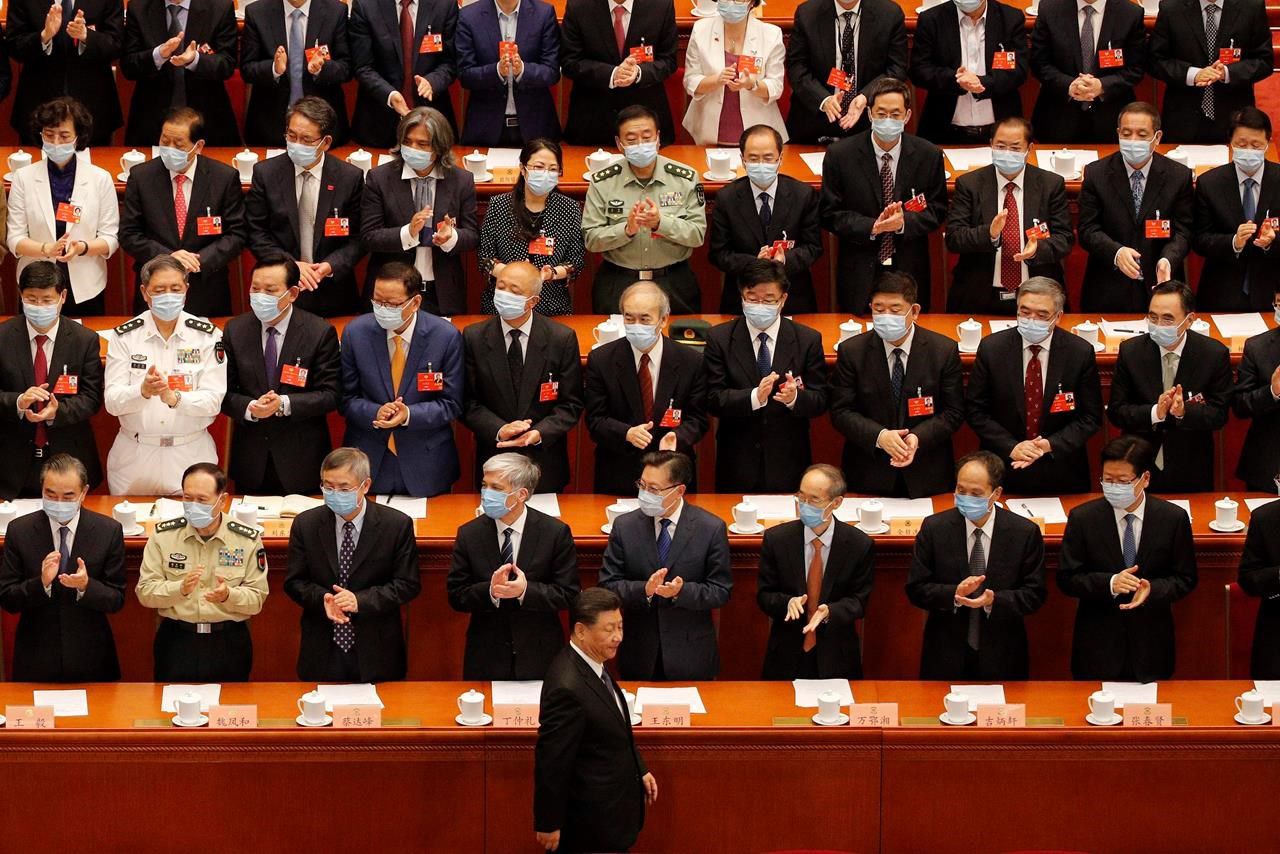
May 2020, China’s National People’s Congress
Approving National Security Law in Hong Kong,
Associated Press
What aspects of the National Security Law do you find most concerning?
Ng: I think we can first think about the four areas of law that were identified as a threat to national security: secession, subversion, terrorist activities, and also collusion with foreign countries. It seems to me that the definitions of these four areas are quite broad. And the law is framed in a way that people who are offering any indirect assistance or aid to promote these types of activities might also fall under the application of the law. And this is perhaps a concern. Reading Article 29 makes me wonder what happens if I criticize a senior Hong Kong government official? Would that fall within the scope of the law? What if I filibuster in the legislative council of Hong Kong? Would that be considered a form of disrupting the formulation of laws and policies? These are gray areas. We haven’t seen any cases being prosecuted yet.
The second concern pertains to Articles 36, 37, and 38 of the law. These articles are applicable to not only Hong Kong residents, but also anyone outside of Hong Kong and China. So in theory anyone who is now providing critical commentary on this subject can go to Hong Kong and be prosecuted. The fact that we are raising this question is already a concern, I think. This is a very broad scope of the law.
[Finally], the presence of the Chinese central government in Hong Kong. Chapter V of the Law suggests that: ‘Central People’s government shall establish in the Hong Kong SAR an office for safeguarding national security.’ Now you have boots on the ground covering matters related to national security that are not part of the Hong Kong SAR government, but from the central government. If certain cases are complex or serious enough, they can actually be taken back to the mainland and not tried in Hong Kong. This is concerning.
Shih: [The National Security Law] is clearly the end of ‘One Country, Two Systems.’ The new bureau will put a lot of pressure on the Hong Kong government to be very hardline; certainly in terms of intelligence gathering, and surveillance, [Chinese authorities] can do a lot more than what they did before. No one can expect any kind of privacy in Hong Kong. A lot of political activities, or even economic activities, and academic activities will be monitored very closely by either the political police in Hong Kong, or this new agency directly from Mainland China. You now have this very powerful agency that is beyond the Basic Law.
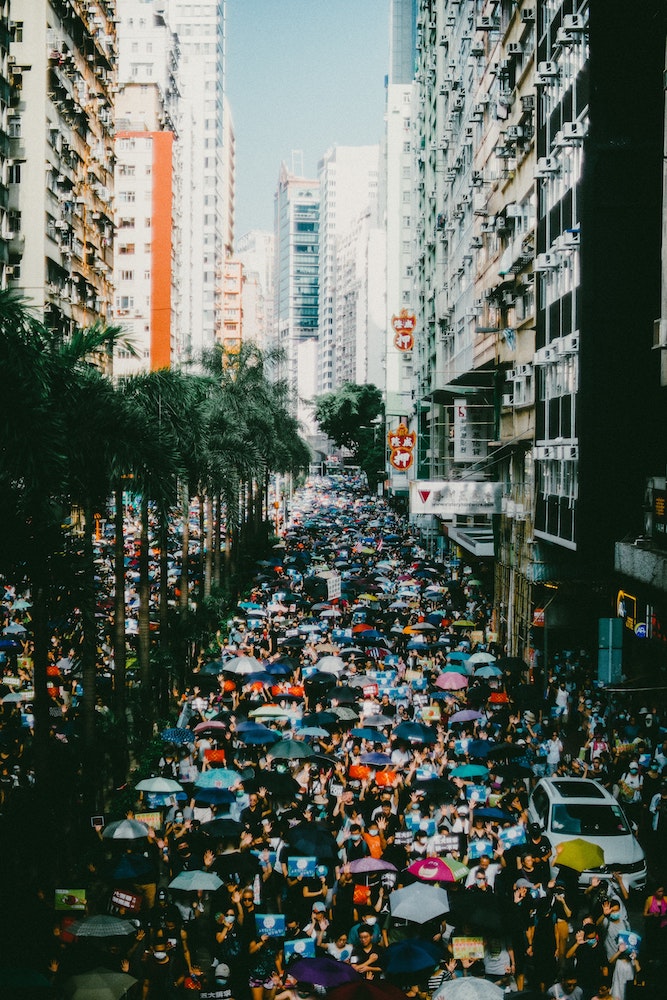 [Referencing Mr. Bernard Chan’s remarks from the webinar he hosted] The stated respect for human rights in the law is merely window dressing. The fact that the law granted unlimited power to a law enforcement agency has made its opposition to human rights rather explicit. The situation in Hong Kong might be more serious than in the mainland, where even the Ministry of State Security doesn’t have unchecked power.
[Referencing Mr. Bernard Chan’s remarks from the webinar he hosted] The stated respect for human rights in the law is merely window dressing. The fact that the law granted unlimited power to a law enforcement agency has made its opposition to human rights rather explicit. The situation in Hong Kong might be more serious than in the mainland, where even the Ministry of State Security doesn’t have unchecked power.
Some mainland speakers suggest that the new National Security Law will bring increased stability to Hong Kong so it should actually increase foreign businesses’ confidence. Others think the opposite will happen. What do you think? Will the law’s overall impact on the Hong Kong economy and businesses be positive or negative?
Ng: The question can be broken down into two parts: First, whether Hong Kong will be more stable [with the new law in place]. If we define stability in the sense that there are not as many protests in Hong Kong, I do think there will be a dampening effect on Hong Kong protests just because the cost of protesting is now higher. The possibility of being arrested and prosecuted, and in the worst case sent back to mainland China to stand trial: these are now real threats.
As for whether or not this is good for business, in order to have a vibrant business environment, there are a lot of factors to consider. Stability is one of them, but you also have to think about whether Hong Kong can continue to maintain its role as a hub for foreign investments and Chinese and local businesses. There are now concerns raised about increased political control challenging Hong Kong’s ability to play the role. Many Chinese government officials...put a high premium on stability. The whole modus operandi of the Chinese government is to maintain stability: social and political. We have to wait to see if the public and investors outside of Hong Kong will think that the rule of law is still intact, and if not, whether or not they are willing to continue to invest in Hong Kong.
Articles 36, 37, and 38 mentioned earlier are applicable to not just individuals, but also corporate entities and organizations. This suggests that companies have to be aware that their company policies of course do not engage in any illegal activities, but also that they do not present the impression that they are encouraging any illegal activities. Sometimes the line can be quite difficult to draw. So that is a gray area.
Hong Kong is in competition with Singapore to be the regional hub for commercial arbitrations and mediations. If certain foreign companies, such as one among the Fortune 500, said something critical about China or the new law, I think there would be concerns about whether Hong Kong still is a desired location for an arbitration hearing for resolving a dispute with a Chinese company. These are things that businessmen will have to think about.
From China’s perspective, [the NSL] is to serve as a preventive tool. Now that people know there is a law, there will be fewer anti-government protests, and no further calls for independence. Whether the National Security Law operates only as a preventive measure, or whether it is going to be actually widely applied, we don’t know. And the lack of certainty is of course not good for businesses. But the aspiration here is to mimic in spirit the late colonial model that worked in Hong Kong before: harsh law on the books that was seldom applied in the last decades of British rule.
“We don’t have answers...we don’t know. And not knowing is not good. The rule of law is supposed to be predictable.” - Ng
Shih: [In regard to the stock market] everything is fine so far, though there was a bit of a sell off initially. Now, Greater China is doing very well, driven by China’s ability to control COVID-19’s spread. The People’s Bank of China (PBOC) has taken deliberate action that helps increase the interest rate. The 10-year bond yield is even higher than last year, which is ridiculous since the whole world is in recession. This is partly because PBOC is afraid of capital flight through Hong Kong out of China. Banks in Hong Kong can issue these wealth management products that will provide investors with a yield of 3%, which is six times higher than equivalent wealth management products that are denominated in US dollars and makes their products extremely attractive. This is costly to Chinese companies and households that have to pay higher interest levels, but PBOC is doing this anyway to prevent any kinds of financial instability.
What do you conclude from Beijing’s decision to implement the National Security Law, and how should the United States react?
Ng: The Hong Kong problem is no longer just a Hong Kong problem. From the fact that even many Hong Kong government officials were kept in the dark, we can find that Beijing's governing approach has shifted further away from a bottom-up and consultative style. An important takeaway for the U.S. is that the Hong Kong problem has evolved beyond a problem of China’s SAR policies. A major reason is that Hong Kong has now become a battleground between China and the west. Aside from the Trump administration’s current policy, the support [for Hong Kong] on the U.S. side has been bipartisan. Both China and the U.S. are now looking at Hong Kong as a piece of a bigger puzzle.
Shih: To be consistent, if the setting up of this mainland agency in Hong Kong spells the end of the ‘One Country, Two Systems,’ then the U.S. is justified in withdrawing special treatments given to Hong Kong previously and treating Hong Kong just as another part of China. U.S. sanctions of Chinese officials might be unfortunate but also necessary and in adherence to traditions such as the Magnitsky Act. The U.S. is not just picking on China but it has valid reasons.
Another way to leverage is to shut down the U.S.’s FDI outflows to the mainland through Hong Kong. A key purpose Hong Kong has served in the past is as a dollar clearing center, and China has been a net exporter of capital through Hong Kong. Starting around 2014, direction of flows began to reverse in a financial sense. China has to borrow money internationally through Hong Kong in order to counteract the outflows. However, this would bring financial instability to the world financial system, which is why it should be considered as a ‘nuclear’ level option and therefore rather unrealistic.
What about the implications for Taiwan and the perception of “One Country, Two Systems”?
Ng: Even before the National Security Law, ‘One Country Two Systems’ was never a very enticing option for Taiwan. If you look at surveys, they show younger generations of people in Taiwan are overall not supportive of reunification. Also the Taiwan situation is a little different. It is a case of de facto independence. While of course China has an influence on Taiwan, its influence is outside of the formal political institutions. It is economic influence, social influence, which have to find ways to work their way into the political system. This is not the case with Hong Kong, because Hong Kong is part of China, and there is a role for the central government to play, even under the design of ‘One Country, Two Systems.’ [The NSL] furthers the tendency for people in Taiwan to take the option of ‘One Country, Two Systems’ even less seriously.

 Victor Shih
Victor Shih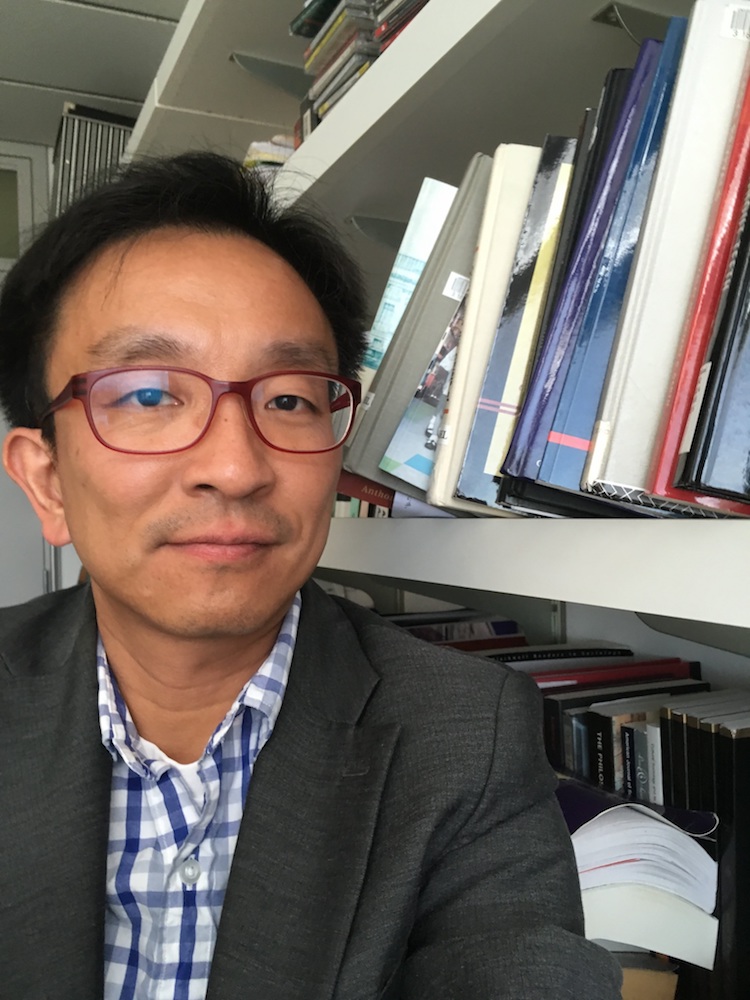 Kwai Ng
Kwai Ng